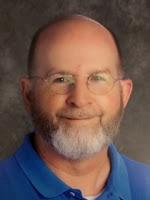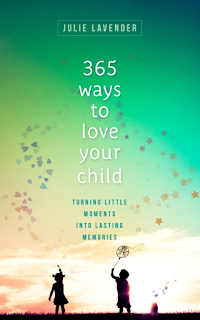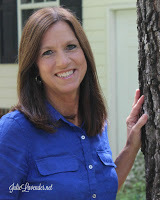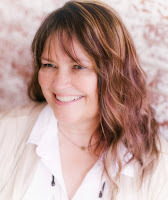Edie Melson's Blog, page 188
September 12, 2020
When Rejection Comes

by Martin Wiles @LinesFromGod
He was a washed-up shoe salesman, caught up in a town-gossiping war.
In the Andy Griffith episode, Those Gossipin’ Men, Aunt Bee and a friend sat in the local drug store, enjoying a cool drink on a hot day. While spreading a little gossip among themselves, they were startled when a stranger came in and tried to sell them a pair of shoes. Surprised because he didn’t try extremely hard. In fact, they labeled him as the “tamest shoe salesman” they’d ever seen. He offered once, they said no, and he went on about his business. Little did he know a gossiping war between the ladies of the town and the men who hung around at Floyd’s Barber Shop would soon engulf him.Prior to the salesman’s arrival, Andy had come into the drug store to get sulfur powder. Barney had cut his finger while cleaning his pistol. The cut was small, but several hours later, someone called the sheriff’s office to report that Barney had shot himself in the chest and had died. When Aunt Bea and her friend hurried to console Andy, they got a surprise when Barney entered…still standing. Andy accused them of being the biggest gossipers in town.
The tame traveling shoe salesman gave Aunt Bee and her friend an opportunity to prove to Andy that just as much gossip came out of Floyd’s Barber Shop. So, when Andy and Barney asked who the stranger was, the two women planted a seed of doubt in their “conceited” male minds by questioning the traveling salesman’s honesty. He didn’t seem eager to sell shoes.
Initially, Andy dismissed their suspicions and again accused them of spreading gossip. But then, he himself became suspicious. Before long, he and the other men in town had turned a washed-up shoe salesman into a New York City television producer. Andy and the other men in town gathered their sons and daughters, ushered them to the man’s hotel room, and had them audition for the traveling salesman. In the process, they bought numerous pairs of shoes—so much so that the failed salesman set a company record for a day’s sales. The traveling salesman came to town a rejected mess, but left a success.
Eliab knew a little about rejection too—as did all young David’s brothers. “But the Lord said to Samuel, ‘Don’t judge by his appearance or height, for I have rejected him. The Lord doesn’t see things the way you see them. People judge by outward appearance, but the Lord looks at the heart’” (1 Samuel 16:7 NLT).
As they passed before Samuel—the prophet God had sent to their father’s house to select the next king of Israel—they each felt the sting of rejection. And imagine how much more humiliating the experience when they discovered God had chosen their younger sheep-tending brother.
Rejection in life is inevitable. We’ll be turned down for promotions, teams, dates, marriage proposals, jobs, projects, clubs, community organizations, writing assignments, and book proposals. And we cannot deny that rejection hurts. Acceptance is one of our basic needs, but not every person will accept us. Nor will everything we attempt to do gain approval from others.
The good news is that while others may reject us or the things we propose, God never will. God selected David because He knew David was a boy (and would later be a man) after God’s own heart. In that respect, nothing has changed. God accepts every person who wants to love and serve Him. No turning away. No turning down.
Life teaches us—often the hard way—that rejection is a part of our existence. But not as it relates to our walk with God. He always walks by our side. Nothing we do will drive Him away. Nothing we face will be so intense that He can’t see us through it. And He will love and accept us…no matter what. Now and throughout eternity.
Let God’s acceptance bring you the comfort you need when others reject you or something you’ve done.
TWEETABLE
When Rejection Comes - Martin Wiles @LinesFromGod on @EdieMelson (Click to Tweet)
 Martin Wiles is the founder of Love Lines from God (www.lovelinesfromgod.com) and serves as Managing Editor for Christian Devotions, Senior Editor for Inspire a Fire, and Proof Editor for Courier Publishing. He has authored six books and has been published in numerous publications. His most recent book, A Whisper in the Woods: Quiet Escapes in a Busy World, released in December 2019. He is a freelance editor, English teacher, author, and pastor.
Martin Wiles is the founder of Love Lines from God (www.lovelinesfromgod.com) and serves as Managing Editor for Christian Devotions, Senior Editor for Inspire a Fire, and Proof Editor for Courier Publishing. He has authored six books and has been published in numerous publications. His most recent book, A Whisper in the Woods: Quiet Escapes in a Busy World, released in December 2019. He is a freelance editor, English teacher, author, and pastor.
September 11, 2020
Choosing to Give Ourselves Some Credit

by Beth Vogt @BethVogt
As I write this blog, we are three days into September. Most people who I talked with reacted to the turn of the calendar page with, “I can’t believe it’s September already!”No one ever expected COVID-19 to dominate so many months, affecting our lives even as we fought to maintain some semblance of normal.
We’ve tried to laugh off a pandemic with memes, as we navigated through a politically- and racially-charged atmosphere both in our neighborhoods and on social media. Every day we balanced how this affected us personally and professionally.
Some of us trudged into September wrestling with the fear that the past months have been wasted.
We haven’t done enough.
We haven’t written enough.
We haven’t marketed enough.
We haven’t been enough.
There is no grace in the words, “I haven’t done enough.”
There is also no room to acknowledge what you have done.
Sometimes we discount things because we make our plans, numbering our list 1, 2, 3. But then circumstances both small and large trip us up, and we have to focus on unexpected things. Needed things, yes. But they weren’t on our list.
We stare at our important-but-ignored list and end up frustrated about what we didn’t get done, never giving ourselves credit for what we did do.
Singer-songwriter John Lennon was correct when he said, “Life is what happens while you are busy making other plans.”
Am I suggesting you abandon your priorities and throw away your To Do list? No. Keep the list, if you must. But accept that things didn’t happen. Your To Do list is written on paper, not stone. Step back and see what did happen – and give yourself some credit. Write down what you did do and cross it off the list, if that’s the only way you can see an accomplishment.
Right now, why not take a few moments and consider what you have accomplished so far in 2020. Most likely, it’s more than you realize.
I’m applauding you for the successes you’ve had so far this year – and cheering you on as we start this new month.
TWEETABLE
Choosing to Give Ourselves Some Credit - @BethVogt on @EdieMelson (Click to Tweet)
 Beth K. Vogt believes God’s best often waits behind the doors marked “Never.” Having authored nine contemporary romance novels and novellas, The Best We’ve Been, the final book in Beth’s Thatcher Sisters Series with Tyndale House Publishers, releasers May 2020. Other books in the women’s fiction series include Things I Never Told You, which won the 2019 AWSA Award for Contemporary Novel of the Year, and Moments We Forget. Beth is a 2016 Christy Award winner, a 2016 ACFW Carol Award winner, and a 2015 RITA® finalist. An established magazine writer and former editor of the leadership magazine for MOPS International, Beth blogs for Learn How to Write a Novel and The Write Conversation and also enjoys speaking to writers group and mentoring other writers. Visit Beth at bethvogt.com.
Beth K. Vogt believes God’s best often waits behind the doors marked “Never.” Having authored nine contemporary romance novels and novellas, The Best We’ve Been, the final book in Beth’s Thatcher Sisters Series with Tyndale House Publishers, releasers May 2020. Other books in the women’s fiction series include Things I Never Told You, which won the 2019 AWSA Award for Contemporary Novel of the Year, and Moments We Forget. Beth is a 2016 Christy Award winner, a 2016 ACFW Carol Award winner, and a 2015 RITA® finalist. An established magazine writer and former editor of the leadership magazine for MOPS International, Beth blogs for Learn How to Write a Novel and The Write Conversation and also enjoys speaking to writers group and mentoring other writers. Visit Beth at bethvogt.com.
September 10, 2020
When I Fail God in My Writing

by Joshua J. Masters @JoshuaJMasters
Despite my good intentions, I’m often faced with how to respond when I fail God in my writing. That sounds harsh, doesn’t it? We might not say it aloud, but many of us in the writing community feel that way in the pit of our stomachs right now.When the isolation of this pandemic started, I was like many authors who said, “I’m going to spend so much more time with God and get a ton of writing done.” But lethargy mixed with the overwhelming learning-curve of additional responsibilities led to less writing and fewer hours with God, not more.
We may have friends who try to encourage us by saying, “You haven’t failed God. Things have just been crazy out there!”
Their intentions are good, and we appreciate the kind words, but we still feel that discouraged nausea and defeated spirit.
So here we are, sitting before an empty page.
Our critique groups are slowly coming back together, children are returning to school in alternative ways, and many of our friends are going back to work. People are resuming their daily lives.
And were it not for the guilt and discouragement we’ve built up for “letting God down,” we’d be returning to our writing with new vigor. So how do we make up for lost time? How do we return to our writing with hope?
Scholars often call Hebrews 11 the “Heroes of Faith” chapter because the author illustrates what a life of faith looks like using revered men and women of the Old Testament as godly examples. In most cases, the author points to an individual, but in verses twenty-nine and thirty, he exalts the people of Israel.
It was by faith that the people of Israel went right through the Red Sea as though they were on dry ground. But when the Egyptians tried to follow, they were all drowned.
It was by faith that the people of Israel marched around Jericho for seven days, and the walls came crashing down.(Hebrews 11:29-30 NLT)
The author points to the faith of God’s people as a community when they’re leaving Egypt and when they first enter the Promised Land.
But notice the space between those two verses. There’s a forty-year gap between God’s parting of the Red Sea in Egypt and the parting of the Jordan River before the fall of Jericho.
What happened in those forty years?
There’s nothing listed between these two verses because there were no significant acts of faith by the people of Israel in all those years—four decades of grumbling, disobedience, and idolatry.
For some of us, the last six months of quarantine have felt like forty years in the desert. And if we’re honest, many of us have responded the same way Israel did, with grumbling, disobedience, and idolatry.
Grumbling over our circumstances, which tainted our offering to God even when we did get some writing done.Disobedience when God asked us to spend time with Him, write, or reach out to care for other writers in our community.Idolatry when we chose Netflix or potato chips (or both) over Him and what He’d called us to do.And now, the enemy whispers with hushed accusations, “Look how you’ve failed God. He must be so disappointed in you. You’ll never get back on track now.”
I know what you’re thinking.
This is the most depressing post about writing I’ve ever read.
But we mustn’t pretend we’re above failure or discouragement. Let’s bring it into the light because that’s where we find the strength to return to God’s plan for us.
There’s an incredible, subtle truth in the middle of that Hebrews passage.
If you’re struggling with having failed God in your writing, I encourage you to grab a highlighter and open your Bible to the book of Hebrews. But I don’t want you to highlight Hebrews 11:29-30. I want you to highlight that small space between those two verses and write the word, “promise” in the margin.
The great miracle of Hebrews 11:29-30 is that God allowed there to be a verse thirty at all. These people had abandoned God. They ignored the purpose He gave them and rejected the calling He’d put on their lives. The people of Israel had failed God in every way for forty years. God could have deserted them after verse twenty-nine.
But the promises of God are anchored in His integrity, not our own.
God’s promises are greater than our failures.
He fulfills His purpose in our weaknesses.
And His calling is stronger than our wanderings.
It took an entire generation, but the moment God’s people were ready to return to their calling, God marched them across the Jordan River and fulfilled His promise as if they’d never fallen.
If God has called you to write, He’s still calling you to write.
He’s waiting to part your Jordan River and knock down the walls you’re facing. The enemy will try to convince us we’re better off staying in the desert, wandering in shame. But the moment you reject that lie to re-embracing the promise God has given you, He renews your journey with Him as if you’d never strayed.
Maybe you have failed God, we all have. But He will never fail you.
God has prepared a verse 30 in your writing, so don’t stay between the verses.
TWEETABLE
When I Fail God in My Writing - Hope from @JoshuaJMasters on @EdieMelson (Click to Tweet)
 Joshua J. Masters is a pastor, author, and speaker. He’s been featured on CBN Television, HIS Radio, and the Light Radio Network. Josh is the author of American Psalms: Prayers for the Christian Patriot and is a contributing author for Feed Your Soul, Refresh Bible Study Magazine, and One Christian Voice. Josh has also worked as an actor and crew member in the film industry (SAG/AFTRA) and continues to have a passion for film. He lives with his wife, Gina, and Franklin the Pup outside Greenville, South Carolina where he serves as a speaking and care pastor.
Joshua J. Masters is a pastor, author, and speaker. He’s been featured on CBN Television, HIS Radio, and the Light Radio Network. Josh is the author of American Psalms: Prayers for the Christian Patriot and is a contributing author for Feed Your Soul, Refresh Bible Study Magazine, and One Christian Voice. Josh has also worked as an actor and crew member in the film industry (SAG/AFTRA) and continues to have a passion for film. He lives with his wife, Gina, and Franklin the Pup outside Greenville, South Carolina where he serves as a speaking and care pastor.Josh would love to connect with you on his website, www.joshuajmasters.com or engage with you on Facebook, Twitter, Instagram, or Goodreads.
September 9, 2020
Be Willing to Heed the Advice of Publishing Professionals …. And Be Patient

by Julie Lavender @JLavenderWrites
In less than two months, my parenting book, 365 Ways to Love Your Child: Turning Little Moments Into Lasting Memories, will celebrate a book birthday. My labor of love really is a labor of love … four labors to be exact and is a collection of many ideas and activities I carried out with my four children as they were growing up.The idea-collecting spanned more than twenty years, and the road to publication took over three years.
Writing isn’t for the faint of heart, is it?
Conference season awaits just weeks from now. Well, thanks to Covid-19, postponed-Spring, now-fall conferences are around the corner, at least. I want to encourage you to attend conferences with a spirit of patience and perseverance and a willingness to heed the advice of professionals in the writing industry.
I’ll share my personal story as an example.
 At the 2017 Blue Ridge Mountains Writing Conference, I made my selection of one-on-one appointments with ideas in hand. I was thrilled when Cyle Young, Hartline Literary Agency, took a look at my bio and some of my proposals and extended the offer to sign with the agency. With great wisdom, he told me take some time to decide, discuss the contract with my husband, and get back with him.
At the 2017 Blue Ridge Mountains Writing Conference, I made my selection of one-on-one appointments with ideas in hand. I was thrilled when Cyle Young, Hartline Literary Agency, took a look at my bio and some of my proposals and extended the offer to sign with the agency. With great wisdom, he told me take some time to decide, discuss the contract with my husband, and get back with him.
I met next with Vicki Crumpton, editor with Revell, a division of Baker Publishing Group. I shared a couple of ideas with her, using my one-sheets I’d prepared under the guidance of previous conference instructors, and mentioned Cyle’s offer to represent me. Vicki pointed to one of the sheets and said, “I like this idea, minus the holiday theme, and if Cyle signs you, have him send it to me.” She followed that with the necessity to engage with readers through blogging – I hadn’t entered those waters yet – and social media.
I did sign with Cyle, just a couple of weeks after the conference, and I took Vicki’s advice and entered the blogging world. I waded into other social media platforms besides Facebook. I reworked my proposal to exclude the holiday theme in my manuscript, and I relished every piece of publishing advice that Cyle offered.
When BRMCWC 2018 rolled around, I grabbed a slot with Vicki again. We talked about my blogspot site and various newspaper and magazine publications I’d secured since the last conference. She kindly suggested that my social media numbers needed work and reminded me to grow my platform.
I followed Vicki’s advice (as well as that of other speakers at the conference who gave similar bits of advice) and worked diligently to connect and engage with others, which inadvertently grew my numbers in the process.
Vicki Crumpton represented Revell at the Florida Christian Writers Conference in 2019, and again, I grabbed a slot for a one-on-one session. In addition to my updated one-sheet, I showed Vicki the stats for the parenting and homeschooling websites that I contributed to, and I also pointed out the growth of my social media interactions through consistent engagement.
Perhaps the “third time really was the charm” for me, because I welcomed Vicki’s words, “Tell Cyle to send me that proposal again.” But guess what? It was another six months before I signed a contract with Revell! (Cyle reminded me often, “It’ll happen; just be patient.”)
And actually due to some publishing changes, I had a shorter deadline to complete the manuscript than originally planned. Which meant my book would release in the fall of 2020, instead of the spring of 2021.
The writing voyage isn’t for the fair-weathered sailor, no doubt, but the journey is so worth it. Heed the advice of those experienced professionals in the industry – they really do know what they’re talking about. And move forward with lots of patience and a hefty amount of perseverance. You’re gonna need both!
TWEETABLE
 Julie Lavender is looking forward to attending the Florida Christian Writers Conference in October and the Blue Ridge Mountains Christian Writing Conference in November. Both conferences played a huge role in her newest book, 365 Ways To Love Your Child: Turning Little Moments Into Lasting Memories, and Julie will always be grateful for the publishing opportunities that the conferences afforded her. Julie is married to her high school and college sweetheart and is the mom of four, mother-in-law of one, and grandmommy to a precious, almost-two-year-old. Julie would love to connect with you at julielavenderwrites.com or on her Facebook group page, 365 Ways To Love Your Child.
Julie Lavender is looking forward to attending the Florida Christian Writers Conference in October and the Blue Ridge Mountains Christian Writing Conference in November. Both conferences played a huge role in her newest book, 365 Ways To Love Your Child: Turning Little Moments Into Lasting Memories, and Julie will always be grateful for the publishing opportunities that the conferences afforded her. Julie is married to her high school and college sweetheart and is the mom of four, mother-in-law of one, and grandmommy to a precious, almost-two-year-old. Julie would love to connect with you at julielavenderwrites.com or on her Facebook group page, 365 Ways To Love Your Child.
September 8, 2020
Learn from Other Writers

by Linda Gilden @LindaGilden
“Read widely in the genre that you want to write!”
I have heard this over and over in the last thirty years. But until recently I didn’t fully understand what that meant.I have always been a nonfiction writer. I read lots of nonfiction and enjoyed it. But often I put down my book and wondered what exactly the lesson was from my reading. I studied the techniques of writers I admired and highlighted and marked as I read. What was I missing?
But then I decided to try my hand at writing fiction. A story began to develop in my mind and little by little the plot took shape. Once again I decided I would put the challenge to the test and read in my new genre – fiction. I wanted to learn from the masters. My targeted genre was romantic suspense so I read lots of books in that genre. Lynette Eason, Lynn Blackburn, Anne Greene, Andrew Huff, Susan Sleeman, James Hannibal, and DiAnn Mills became some of my favorites and are all prolific novelists.
Within the pages of the books I read was a gold mine. I finally caught on as to what writers meant when they suggested I read books in the genre I wanted to write. Not only did the pages come alive, but I saw why. When I began my novel I was armed with having studied techniques others were using that worked.
The first chapter in my novel was good but just average good. Because I had read many novels in that genre I knew why it was mediocre and I realized what was missing. There was not enough action and suspense and I knew my readers would never stick with me until the end of the book. I analyzed the characters in the books. Why were some incredibly deep and I laughed and cried with them. Others were okay, but here again, I saw what was missing and fixed it.
Now if people ask me about reading in their new genres, my reply is, “Absolutely, there is no better way to learn.”
A few good reasons to study great books in your genre are:
1. You are a word lover.
To take your writing to the next level you must learn to string your words together so they are beautifully written. When a scene requires suspense and excitement, short, punchy sentences will carry that feeling through. When you have a deep, intimate scene between two characters, your words should be slow and intimate.
On vacation I read a New York Times bestselling author’s book. I sat on the sand reading. I came to a passage that was unbelievably communicative and well done. I stood and started following my sister around. “Listen to this passage. Isn’t the writing amazing?” Not being a writer, she didn’t share my excitement. But It was a turning point for me as I began to see the difference in good writing and not-so-good writing.
2. Reading books is a good influence on your own writing.
Several opinions exist on how much influence we take from other writers. You see people listing on book proposals, “My Bible Studies are in the style of Beth Moore. I write just like her.”
We don’t need another Beth Moore. God already made one. However, Beth Moore’s writing is excellent and has many traits that can help us learn to write well and use effectively in our own style. The romantic suspense writers I mentioned each have individual styles I can learn from and apply to my writing. Editors are not looking for copycats. They are looking for creative writers who can take what they learn from others and make it their own.
3.To learn what doesn’t work.
The opposite of reading to learn all the good things from other writers is that reading widely will help you recognize what doesn’t work. You can avoid beginner mistakes by seeing them used in others’ books. And unless you have read the really good books, how are you going to recognize something that doesn’t work?
Character development is so important, especially in fiction. When you see a character that acts outside the realm of what is expected of his or her personality, you immediately recognize that the author either doesn’t know or hasn’t developed the backstory fully.
Many more good reasons exist for writers to read widely. Possibly the biggest question for writers to ponder is this—if writers don’t enjoy reading books written by others and learn from those who have gone before them, how can they be sure others would want to read the books they have written? What books have changed the course of your life? Wouldn’t you want to write a book like that?
TWEETABLE
Learn from Other Writers - @LindaGilden on @EdieMelson (Click to Tweet)
 Linda Gilden is an award-winning writer, speaker, editor, certified writing and speaking coach, and personality consultant. Linda is the author of 19 books and over 1000 magazine articles. She enjoys every meeting with editors and knowing we are all part of the same team. Linda’s favorite activity (other than eating folded potato chips) is floating in a pool with a good book surrounded by splashing grandchildren—a great source of writing material! www.lindagilden.com
Linda Gilden is an award-winning writer, speaker, editor, certified writing and speaking coach, and personality consultant. Linda is the author of 19 books and over 1000 magazine articles. She enjoys every meeting with editors and knowing we are all part of the same team. Linda’s favorite activity (other than eating folded potato chips) is floating in a pool with a good book surrounded by splashing grandchildren—a great source of writing material! www.lindagilden.com
September 7, 2020
Writing Truth in Fiction - 4 Tips

by Cindy K. Sproles @CindyDevoted
Thumbing through social media crushes my writing soul. These days, an innocent joke among friends leads to accusations of social injustice, racism, or politics. It makes writing a difficult thing. We now have to pour more critically over our work and that makes getting the message out, hard. Given light to highly publicized social injustices, innocent lines of dialogue are now taken as offensive and for Christian writers, the use of God or religion in anything is increasingly difficult. We can hardly allow characters to work through conflict and issues without strong social scrutiny or being tagged insensitive.
Here are 4 ways to write to a troubled world and still bring forth truth.
Never forget who you are writing for – If you feel called as a Christian writer, never forget who you are writing for. Jesus taught hard subjects through parables. He never called anyone names (well, maybe the money changers are the exception), instead, he gave them a story through love that pinged their common sense and His points always reverted back to His Father. He walked listeners through the consequences of their mistakes and into the light of better decisions. If we master this simplistic ability, what an impact we can have on others.Do not be afraid of the hard subjects – Best-selling author, Steven James once said, “Don’t avoid hard subjects, instead, learn to write from the decision’s consequences.” I’m sure he grabbed this from Jesus, but the point is, he made this a profound thought that changed my perspective. Readers cannot argue with the consequences of a hard subject but they can argue opinion. Show the consequence of a bad decision and allow characters to work through. Stop preaching – Learn to write both sides of the character’s situations. Wagging a finger, insisting those bad characters repent, doesn’t work when you reach beyond your religious circle. Allow characters to truthfully express their understanding, or lack of, in their walk. Let them express their anger, expectations, or frustration at God and as the character develops, provide them the understanding they seek. Allow your “good” character to make mistakes, suffer consequences, and then rebound from better choices. Slowly allowing a character to experience and understand what it is to have a spiritual life, becomes realistic and authentic. Most folks slowly arrive at an understanding of God and the need only He can fulfill. Learn to write this way.Stop praying for God to help you publish – Though this isn’t wrong by any means, consider praying for how your work can speak Christ boldly in a time when words can be so damming. In today’s ultra-sensitive world, ask God for the right approach or words necessary to get the message out. Then believe He will do so. When you loosen the grip around your work enough for God to take hold, it allows Him the necessary room He needs.We cannot write to please the world. We can only write to please God. Holding firm to the truth yet exploring new ways to broach subject matter is challenging. Speak gentle truth and God will pierce the souls of those who need to hear.
Cindy K. Sproles is an author, speaker, and conference teacher. She is the cofounder of Christian Devotions Ministries and the executive editor for christiandevotions.us and inspireafire.com. Cindy is the lead managing editor for SonRise Devotionals and also Straight Street Books, both imprints of LPC/Iron Stream Media Publications. She is a mentor with Write Right and the director of the Asheville Chrisitan Writers Conference held each February at the Billy Graham Training Center, the Cove, Asheville, NC. Cindy is a best selling, award winning novelist. Visit Cindy at www.cindysproles.com.
September 6, 2020
Blog Formatting Tricks

by Edie Melson @EdieMelson
Almost daily I get emails from bloggers who have run into seemingly insurmountable formatting problems. Truthfully there’s not much more frustrating that to finish writing a great blog post and then spend hours trying to get it formatted like you want.
I’ve even seen a blogger spend a weekend moving a blog from one platform to another to only run into the same exact issue. The easiest way for blogging problems to creep in is by using a word processing program to write your blog, then copying and pasting the text into your blog’s compose window.
BUT, that is exactly what I recommend you do. There are several reasons to compose your posts in a word processing program, like Microsoft Word.
Composing in a word processing program gives you a backup of your blog posts in case the unthinkable happens and your blog is erased or compromised.Most word processing programs have some version of spell check. This helps keep your blog posts clean and error free.However, to make the process of copying from a word processing program to you blog compose wide, there are some formatting you'll want to add later. These are things that aren't compatible with the compose window of your blog.
What when you’re composing in a word processor:
Bullet points (add those after you copy your post into the compose window).Automatically numbered lists. If you type in the numbers yourself, you’ll be fine. Just don’t let the computer do it for you.Paragraph indentions.Automatic blank line additions before or after a paragraph.Even if you’re careful to avoid those pitfalls there are times when your formatting just won’t work. To get rid of weird formatting that’s hidden in a word processor’s default programming you could add another step and copy and paste your post into a text editor before you move it to your compose window.
But who wants to add an extra step? Not me, that’s for sure!
So what’s a blogger to do?
Here’s a trick that will make your life easier.
Go ahead and compose your posts in a word processor.Then copy and paste the post into your compose window.Next highlight your entire blog post.Now here comes the trick—look for the small icon at the top of your compose window that either says REMOVE FORMATTING or CLEAR FORMATTING. It may look like a capital T with a small red x beside it or like an eraser. Highlight the misbehaving text and then click this button. It will remove any formatting you’ve inadvertently brought over from your word processing program.Now go to the beginning of your post and put in any formatting you want to include.
Now it’s your turn, what tricks do you use to make blogging easier? What issues do you have trouble with? Post your comments below and we’ll all learn from each other.
Don’t forget to join the conversation!
Blessings,
Edie
TWEETABLE
Blog Formatting Tricks - @EdieMelson (Click to Tweet)
 Edie Melson is a woman of faith with ink-stained fingers observing life through the lens of her camera. No matter whether she’s talking to writers, entrepreneurs, or readers, her first advice is always “Find your voice, live your story.” As an author, blogger, and speaker she’s encouraged and challenged audiences across the country and around the world. Her numerous books reflect her passion to help others develop the strength of their God-given gifts and apply them to their lives.Connect with her on her website, through Facebook, Twitter and on Instagram.
Edie Melson is a woman of faith with ink-stained fingers observing life through the lens of her camera. No matter whether she’s talking to writers, entrepreneurs, or readers, her first advice is always “Find your voice, live your story.” As an author, blogger, and speaker she’s encouraged and challenged audiences across the country and around the world. Her numerous books reflect her passion to help others develop the strength of their God-given gifts and apply them to their lives.Connect with her on her website, through Facebook, Twitter and on Instagram.
September 5, 2020
Peter, the Shameless Witness

by Audrey Frank @AudreyCFrank
“Salvation is found in no one else, for there is no name under heaven given to men by which we must be saved.” When they saw the courage of Peter and John and realized that they were unschooled, ordinary men, they were astonished and they took note that these men had been with Jesus (Acts 4:12-13).
Peter was a shameless witness who boldly declared who Jesus was. How did this rugged, coarse-mouthed fisherman become so fearlessly eloquent?Shame is an identity issue. It causes people to hide, to cower, to shrink from doing great things.
Writers are acquainted with shame. The editor says, “Your manuscript is not up to standard. Rejected.” A critic writes a scathing review of a piece we labored over for months. We internalize this shame and believe we are not up to standard. We wonder if we bring any value to the craft. If we should just hide. Quit.
I see no shame in the Peter of Acts 4. How do we become like Peter, the shameless witness who boldly and with great clarity declared who Jesus was?
Peter’s boldness, his lack of shame, was a product of being with Jesus. Peter knew who he was, no matter what the shot-callers, acceptance-bestowers, and rule-enforcers called him. Peter knew what was true about him at the core, and he learned this by spending time with Jesus.
If anyone had a track record to inspire shame, it was Peter.
One day Jesus explained to the disciples that He must suffer many things, be killed, and on the third day be raised to life. Hearing this incredible news, Peter dared to rebuke and refute Jesus, resulting in Jesus’s stern response, “Get behind me, Satan! You are a stumbling block to me; you do not have in mind the things of God, but the things of men” (Matthew 16:23).
In an ironic twist worthy of a bestseller, Peter famously denied Jesus three times (John 18:17, 25, 27) after swearing his allegiance to Him on the eve of His death (John 13:37).
It would have been natural for Peter to believe Shame’s supreme lie: I am bad. There is something intrinsically, irreparably wrong with me.
It’s important here to note the difference between guilt and shame:
Guilt says I did something bad. (Yes, this is bad grammar. I’m guilty.)
Shame says I am bad. (Using bad grammar when it serves one’s purposes does not make one a bad writer.)
Guilt is a good thing. It alerts us when we have done something wrong. Peter had definitely done things wrong. So have we.
But when our guilt translates to shame, when wrong behavior becomes wrong identity, we need help. We are trapped in an identity crisis, and it will contaminate all that flows from us. Our writing, our message, our response to failure. Instead of growing through the rejection that we worked so hard to avoid, we are paralyzed by it, and it reinforces our false belief that we are bad. We may even give up.
How will we tell the world who Jesus is with boldness and clarity if we believe shame’s lie and give up entirely?
The first step toward being a shameless witness for Christ in our writing is to spend time with Jesus, listening and learning from Him who we are. And we are not bad. When God created man and woman, He declared His work good. God created every one of us with equal, immeasurable value. Sin has marred our souls and our relationship with God, but it has not changed the fact that we were created with priceless worth. And God has made a way through His Son Jesus for us to walk in that identity again. Through Jesus, we need not hang our heads in shame, believing there is no hope for us. There is mighty hope! Tenacious, never-giving-up-on-us, chasing-after-us hope.
In the days after Jesus’ resurrection, we see Hope chasing Peter. Hope compels him to run to the tomb, only to find it empty (John 20:3-7). Hope calls him out to the deep, rousing him before dawn to return to the boat where he spent so many significant hours with Jesus (John 21:1-3). His friends, painfully aware Peter was hurting, insisted on going with him. Several present that day had seen Jesus since the resurrection. Imagine the agony in Peter’s heart as he wondered why Jesus had not come to him yet. It would have been logical to conclude it was because he had failed Jesus and their relationship was permanently broken.
As Peter and his friends took up the familiar nets, Jesus revealed Himself to them from the shore. The moment he perceives it is the Lord, Peter jumps into the water with his clothes on.
He has not forgotten me!
What mixture of fear and joy Peter must have felt as he half-ran, half-swam through the cold lake water to get to His Lord.
No, Jesus never forgot, not for one moment. With intention, gentleness, and power, He fixed His gaze on Peter. He would not leave this precious one in the grips of shame. What follows is a tender reinstatement, a full restoration of Peter’s identity. In the end, Peter is not only forgiven, his shame removed, he is reminded of his purpose.
Then he said to him, “Follow me!” (John 21:19)
Peter rises from that sandy beach with peace. Clarity. Work to do.
This is the Peter we see standing before the rulers, declaring who Jesus is. This is the Peter who, through his shameless witness, bore evidence of having been with Jesus. His credentials or lack thereof were eclipsed in this greatest credential of all.
What do you believe about yourself, writer? Do you know what is true about you?
Here are just a few things that are true about you.
God, the one who made you, declares you good. (Genesis 1:31, Psalm 139:14)God is your enough. (2 Corinthians 3:5, 2 Corinthians 9:8)God calls you chosen, not rejected. (Isaiah 41:9-10)When we follow Christ, we can trust God with our failures and successes. (Proverbs 16:9, Psalm 37:23-24, Lamentations 3:22-24)
Rise from this place and follow the Savior. He will make you a shameless witness to the world.
Lord, show me who You say I am. Where shame has immobilized me set me free with Your Truth so that I may be a shameless witness for Jesus. Amen.
TWEETABLEPeter, The Shameless Witness - @AudreyCFrank on @EdieMelson (Click to Tweet)
 Audrey Frank is an author, speaker, and storyteller. The stories she shares are brave and true. They give voice to those whose words are silenced by shame, the hard things in life that don’t make sense, and the losses that leave us wondering if we will survive. Audrey and her family have spent over twenty years living and working among different cultures and world views, and she has found that God’s story of redemption spans every geography and culture. He is the God of
Instead
, giving honor instead of shame, gladness instead of mourning, hope instead of despair. Although she has three different degrees in communication and intercultural studies, Audrey’s greatest credential is that she is known and loved by the One who made her.
Audrey Frank is an author, speaker, and storyteller. The stories she shares are brave and true. They give voice to those whose words are silenced by shame, the hard things in life that don’t make sense, and the losses that leave us wondering if we will survive. Audrey and her family have spent over twenty years living and working among different cultures and world views, and she has found that God’s story of redemption spans every geography and culture. He is the God of
Instead
, giving honor instead of shame, gladness instead of mourning, hope instead of despair. Although she has three different degrees in communication and intercultural studies, Audrey’s greatest credential is that she is known and loved by the One who made her.Audrey is the author of Covered Glory: The Face of Honor and Shame in the Muslim World (Harvest House Publishers), an outpouring of Audrey’s heart to introduce others to the God of Instead. Shame is not unique to the developing world, the plight of the women behind veils, young girls trafficked across borders; shame is lurking in hearts everywhere. Through powerful stories from women around the world, Covered Glory illuminates the power of the Gospel to remove shame, giving honor instead. Available at favorite booksellers: Barnes & Noble , Books A Million, Amazon.
You can also find Audrey at www.audreyfrank.com, as well as on Twitter and Facebook
September 4, 2020
Do You Feel Like a Phony Writer?

by Tim Suddeth @TimSuddeth
When I quit my job to stay home with my son, I had to decide what I wanted to do, who I wanted to be. I needed a label. Something to give me an identity both when I met someone and had to answer that question that is always asked when you’re introduced to someone. The one right after what’s your name, what do you do? And I needed the label when I looked in the mirror in the morning. I knew I wanted to be a writer.The problem was that I didn’t know what it meant to be a writer. When you look at all the ways we get our written information today—books, newspapers, magazines, blogs, devotionals, fiction, nonfiction, Bible studies—the list is seemingly endless. And constantly growing. How do you choose which category you want to write in?
Not only that, when you tell someone you’re a writer, they usually ask, what have you written? I hadn’t written anything yet. Who was I to say I was a writer? The phony label flashed on my forehead.
One of the smartest things I did when I began writing was to attend a local writers’ group. At the time, it was Cross and Pens but now they have become a Word Weavers chapter. I was so happy, I’d found my niche. I met other, breathing, people who were doing this writing thing, and some of them were being published. (I mean, we usually do want someone else to see our work, don’t we?) I learned of different places to submit, how to make my writing clearer, and, most importantly, that regular folks like me could do it. Although I was the only man there, it didn’t matter. These were writers.
And they let me fit in. They didn’t laugh at my dreams, at me not knowing the difference between devotions and devotionals, not being able to make my subject/verb agree. (Okay, there were some snickers, but it was all in fun.) I realized I could do this. I determined I would do this.
Don’t you love it when you are reading two different books and they ‘coincidentally’ touch on the same topic, making you go, “Aha.” In addition to the above quote from Austin Kleon in Steal Like an Artist, Max Lucado (To my readers, yes, him again.), in his Just Like Jesus Devotional, gives four steps for knowing God’s will for our lives. His second step is to ask yourself, what is your longing? God normally won’t ask you to do something you can’t or don’t want to do. He will probably guide you out of your comfort zone, but He will, also, provide the steps and people to help you along the way.
What do you like to read? That’s often a good guide to what you should write.
However, for me, I read a little of everything. I start with the morning newspaper, followed usually with a devotion or a Bible study. During the day, if I come across a magazine, either in the mail or in a waiting area, I’ll read through it. Then I usually end my day with a biography and a mystery. That didn’t help me find a focus.
One great thing about writing is you don’t have to write only in one area. If you’re guided to one area great, but don’t let that stop you if you get a different opportunity. And, if, like me. you feel overwhelmed at the options, pick one and try it on. See if it fits. Then try something else. I’ve written devotions, book reviews, an article for Guidepost, articles for various blogs, and now novels. And the list will probably continue to grow.
Most of you may not list writing as your main calling. That’s fine. Most writers have other jobs: John Grisham is a lawyer, there are teachers, parents, nurses, farmers, the list is endless. It’s funny how, when I ask about people’s jobs at the dinner table at a conference, I usually get short answers. We are there as writers. For that moment, we seem to want to put the other aside.
What makes someone a writer is their desire to write? How can the beginning writer find their voice, their style, all those things they hear writers talk about. They do it by writing.
My brother told me once about his favorite writer. Who was not me, by the way. Not that I noticed. It was his first wife, who never claimed to be a writer. She was proud to be a social worker.
What made her a good writer? Her writing touched him. Isn’t that why we write, what brings us to that terrifying blank page? So we can touch someone?
I think that is a truly worthy calling.
TWEETABLE
Do You Feel Like a Phony Writer? - @TimSuddeth on @EdieMelson (Click to Tweet)
 Tim Suddeth is a stay-at-home dad and butler for his wonderful, adult son with autism. He has written numerous blogs posts, short stories, and three novels waiting for publication. He is a frequent attendee at writers’ conferences, including the Blue Ridge Mountain Christian Writers Conference and a member of Word Weavers and ACFW. He lives near Greenville, SC where he shares a house with a bossy Shorky and three too-curious Persians. You can find him on Facebook, Twitter, or at timingreenville.com.
Tim Suddeth is a stay-at-home dad and butler for his wonderful, adult son with autism. He has written numerous blogs posts, short stories, and three novels waiting for publication. He is a frequent attendee at writers’ conferences, including the Blue Ridge Mountain Christian Writers Conference and a member of Word Weavers and ACFW. He lives near Greenville, SC where he shares a house with a bossy Shorky and three too-curious Persians. You can find him on Facebook, Twitter, or at timingreenville.com.
September 3, 2020
5 Tips Guaranteed to Make an Editor REJECT Your Story (before they even read it)

5 Tips Guaranteed to Make an Editor REJECT Your Story (before they even read it)by A. C. Williams @Free2BFearless
Got a manuscript to pitch at your next conference? Want to be remembered? Of course, you do. But will the editor remember you as a creative professional or as an unteachable, self-entitled know-it-all? If you want to make a professional impression on an editor, DON’T do the following:
1. Ask if they’re old enough to be a publisher.
The first words out of this gal’s mouth when she walked into the appointment room: “Are you old enough to be a publisher?”
She didn’t even say hello. Maybe I should have been flattered. I don’t know. Point being, please don’t question the editor’s age. Leave age out of it completely. Sit down. Shake hands. Make eye contact. Talk about your story. And then leave.
I don’t remember this lady’s manuscript at all. I just remember her thinking I wasn’t old enough to know what I was talking about. That’s not the impression you want to leave, trust me.
2. Avoid research before your appointment.
“What can you do for me that I can’t do for myself?” That was this author’s opening line. Maybe he thought he was being direct, but he came off like a jerk.
Treat your pitch like a job interview. Look at the editor as someone who is looking to hire you, not the other way around.
If you want to pitch to a publisher, read the books they publish. Read their website. Study their authors. Look at their popularity on different online platforms. See if you can track how they do their marketing. It’s tedious, but you can learn a lot about a publisher before you even meet them.
Going into a pitch with an entitlement mentality is one of the fastest ways for your manuscript to end up in the garbage.
3. Argue with their suggestions.
A young man pitched an epic high fantasy story to me once. I loved the concept. I loved the work he’d done, but it was 375,000 words.
I recommended that he consider splitting it into two or three books to make it more marketable, and you’d think I had suggested chopping his firstborn child into pieces. He got defensive, declared he could write as well as Patrick Rothfuss, so he didn’t need a word count limit.
Y’all, if an editor takes the time to give you feedback at a pitch appointment, please listen. Even at a conference, an editor is under no obligation to do that. Any feedback usually is going to come from a desire to help you be a better writer.
You are free to disregard their advice, but please—PLEASE—don’t argue with them. Accept feedback and criticism with grace. Eat the watermelon, and then when you aren’t sitting across the table from them, you can spit out the seeds.
4. Declare if they don’t like your idea they can hit the road.
“My story has some content in it that makes people uncomfortable,” he said, “and if you don’t like it, I’ll go somewhere else.”
I’d love to tell you I told him he could do that, but this was early on in my tenure in acquisitions. So he pitched (professionally too), but as promised, it was cringe-worthy.
Write what you feel called to write in the way you feel called to write it, but traditional publishing is a partnership. You aren’t the best thing since sliced bread, my friend. And neither is your story. So don’t expect that a publisher will bend over backward to accommodate you.
5. Pitch like a creeper.
Hey, you amazing guy authors out there? You’re incredible, and the industry needs more men like you. Could you pass on your kindness and self-awareness to the others of your gender? The ones who like to use bullying and intimidation to get their way?
Probably the most disturbing pitch I ever took was from a gentleman with a truly horrifying story concept, which he described to me in intricate detail. At the end, I was so uncomfortable, I didn’t know how to respond.
To be clear, he didn’t DO anything to me, but the content of his manuscript and his attitude about it made me feel unsafe.
Guys, if you’re writing a story about a delicate subject matter (especially if it’s sexual in nature), please consider who you’re pitching to and take appropriate measures. If you’re pitching to a woman, give her an out. Maybe she can handle it, but don’t just assume that she wants to hear about the sordid escapades in the story without asking her first. Don’t make inappropriate jokes. Don’t insinuate inappropriate things. Don’t try to intimidate her because she has authority over you at that moment. Treat her like God’s daughter, because for all you know, she might be.
In conclusion, editors are people too. Treat them the way you’d like to be treated. And remember, the writing industry as a whole is very small. The Christian writing industry is even smaller. You never know when you’re going to run into another co-laborer in this field again, so put on your grown-up pants and be professional. That’s the best way you can make a positive lasting impression.
TWEETABLE5 Tips Guaranteed to Make an Editor REJECT Your Story (before they even read it) - Amy C. Williams, @Free2BFearless on @EdieMelson (Click to Tweet)
 A.C. Williams is a coffee-drinking, sushi-eating, story-telling nerd who loves cats, country living, and all things Japanese. She’d rather be barefoot, and if isn’t, her socks will never match. She likes her road trips with rock music, her superheroes with snark, and her blankets extra fuzzy, but her first love is stories and the authors who are passionate about telling them. Learn more about her book coaching services and follow her adventures on social media @free2bfearless.
A.C. Williams is a coffee-drinking, sushi-eating, story-telling nerd who loves cats, country living, and all things Japanese. She’d rather be barefoot, and if isn’t, her socks will never match. She likes her road trips with rock music, her superheroes with snark, and her blankets extra fuzzy, but her first love is stories and the authors who are passionate about telling them. Learn more about her book coaching services and follow her adventures on social media @free2bfearless.



